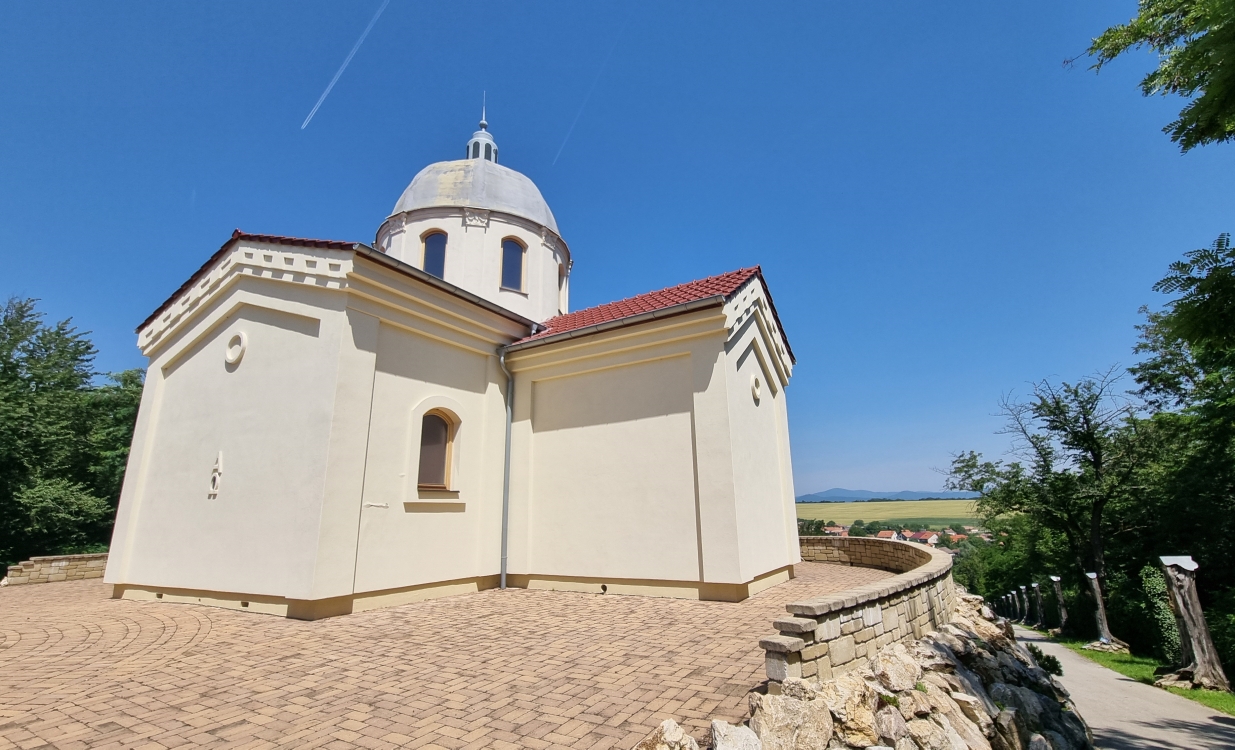
A memorial place for the Hungarian martyr of Europe's darkes times. Continue reading
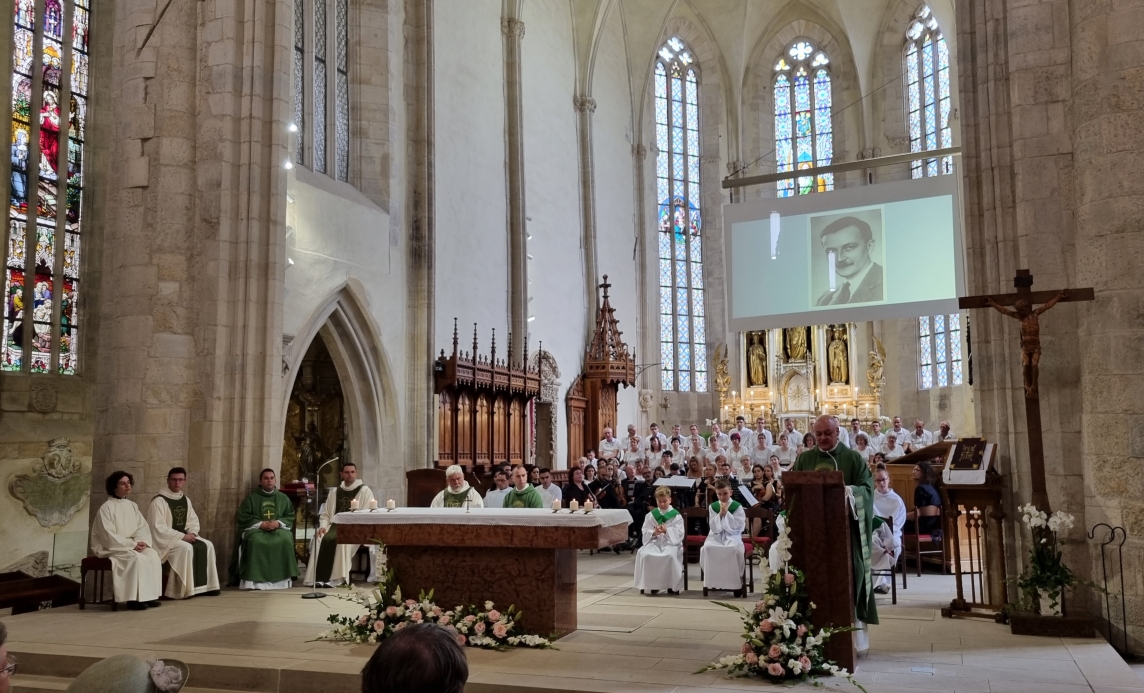
A day before the official start of the Hungarian Days in Cluj-Napoca (Kolozsvár) in Romania, a Holy Mass was celebrated for the beatification of the anti-fascist, anti-communist martyr politician, Count Esterházy, in the Church of Saint Michael on Sunday, August 19.
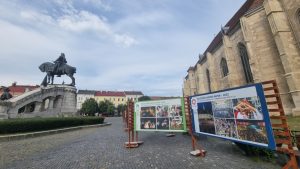
Posters are ready for the Hungarian Days near the Church of Saint Michael. Photo: Hungary Today
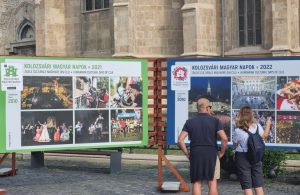
Photo: Hungary Today
The mass was celebrated by the medieval church’s dean, Attila László. Following the mass, a plaque depicting János Esterházy (1901-57) was unveiled in the hallway of the nearby Sapientia University.
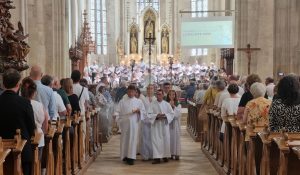
A mass in support of the beatification of János Esterházy was held in the Church of Saint Michael. Photo: Hungary Today
The Hungarian Days in Cluj-Napoca is a special form of the Hungarian quality of existence; it shows not only how unique our cultural heritage is, but also that its preservation is our common responsibility,
János Nagy, State Secretary in the Prime Minister’s Office, said on Monday, at the opening gala of the 15th edition of the Transylvanian Hungarian Cultural Festival.
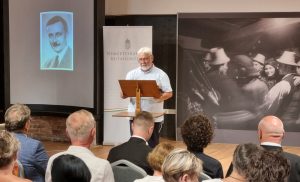
Historian Imre Molnár delivers a lecture on the life and message of Count Esterházy. Photo: Hungary Today
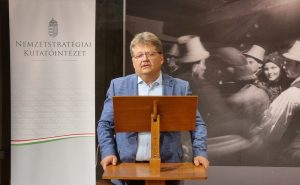
Jenő Szász, President of the Research Institute for National Strategy. Photo: Hungary Today
In his speech to an audience at the Hungarian theater, the politician drew attention to the importance of remembrance. In addition to the founding of the Hungarian state, he recalled that on this day 708 years ago, the Hungarian King Charles Robert restored the free royal status of Cluj-Napoca, and 15 years ago, a group of young people decided to create a Hungarian cultural festival in the capital of Transylvania.
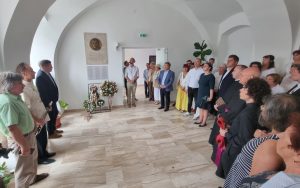
A memorial plaque was unveiled with the blessing of dean Attila László (4th R). Photo: Hungary Today
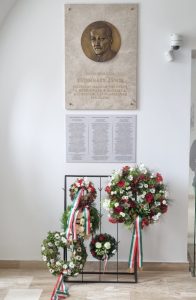
The unveiling was followed by wreath-laying. The Friends of Hungary Foundation, publishers of our news portal, was represented among the wreath-layers. Photo: Hungary Today
“So, just like in Hungary, 2010 marked the beginning of a new era here in Cluj-Napoca. The dawn of an era that was fraught with struggles, faced with many challenges, but which was, on the whole, forward-looking and a source of pride,” said János Nagy.

The performance of the Hungarian State Folk Ensemble at the opening gala of the 15th Hungarian Days , in the Great Hall of the Hungarian Opera in Cluj-Napoca. MTI/Kiss Gábor
He pointed out that the Kolozsvár (Cluj) Hungarian Days has now become one of the largest cultural events in the Carpathian Basin, with many Transylvanian cities following suit. He said that “this is a great achievement”, a courageous act in line with the motto of Prince Gábor Bethlen: “you cannot always do what you have to do, but you must always do what you can”.
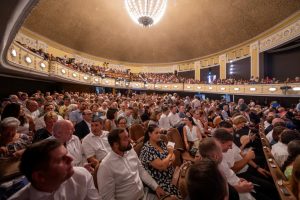
The Hungarian Opera in Cluj-Napoca. MTI/Kiss Gábor
He recalled that while yesterday was about survival, today is about building, for which the Hungarian government is providing all the support it can. Today, too, many people would like Hungarians to see themselves as small, weak and fragile, yet even if they are scattered in different countries, Hungarians are the largest nation in the Carpathian Basin.
Together we are strength, apart we are weakness”,
he said.
He referred to the Hungarians’ commitment to peace and to the fact that the peoples of the Carpathian Basin and Central Europe have always been able to bring prosperity for the region by working together. “We can live poor – separately, or richly – working together,” he said.
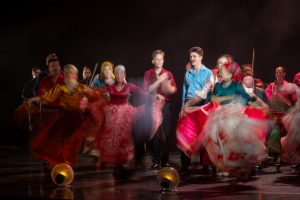
The performance of the Hungarian State Folk Ensemble at the opening gala of the 15th Hungarian Days , in the Great Hall of the Hungarian Opera in Cluj-Napoca. MTI/Kiss Gábor
He added that this is why Hungary is interested in Romania’s development, and during its EU presidency it will support its Schengen membership and the Budapest-Cluj high-speed railway, which could also be extended to the capital, Bucharest.

Rainbow over the Church of Saint Michael on the opening day of the 15th Hungarian Days. Photo: Hungary Today
This year, the organizers had prepared two gifts: a thousand-piece jigsaw puzzle of the Main Square full of Hungarian craftsmen, and an old postcard of St Michael’s Church, which was awarded the Europa Nostra prize this year.
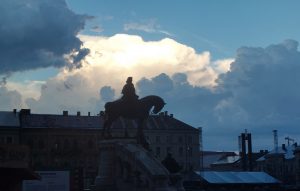
Statue of Hungarian King Mathias Corvinus, (1443-90) on the main square. Photo: Hungary Today
At the opening gala, the Treasures of Cluj-Napoca Award was presented to 94-year-old historian Ákos Egyed for his outstanding work in the field of Hungarian history and his tireless community and scientific work. The opening gala was also made more solemn by a dance concert of the Hungarian State Folk Ensemble entitled Wanderers of the Great City.
Via Hungary Today live reporting, and MTI. Featured Photo: Hungary Today